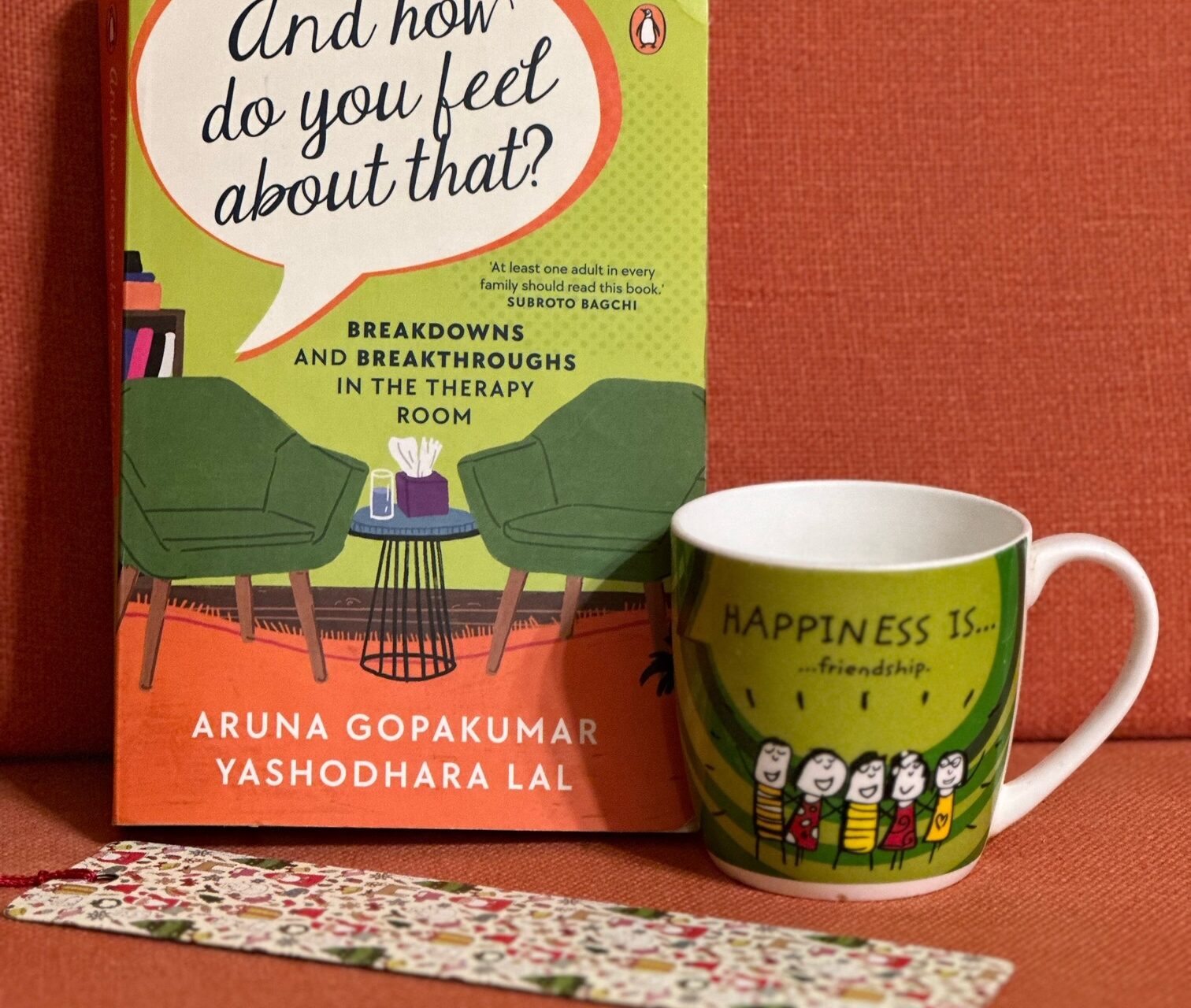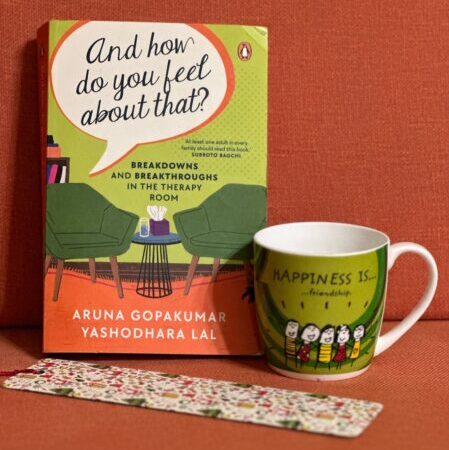For as long as I can remember, being an inconspicuous observer and watching people has been one of my favourite pastimes. Wherever I am and whatever it is that I am doing, I am drawn towards observing people and thinking about why they do what they do and why they are the way they are. Humans fascinate me. The ways people behave, their actions and the thought processes that define them – all these inspire the writer in me immensely.
The human mind, I have often felt, is a labyrinth – a very intriguing conundrum. Whenever I attempt to visualise what it feels like to traverse the depths of my mind, I see myself navigating a maze, dizzying and enthralling in equal measure. Would others’ minds be like this too? I wonder often.
Given my interest in human psychology, the human mind and mental health, I was drawn into therapists Aruna Gopakumar and Yashodhara Lal’s book “And how do you feel about that?” right from the beginning. As the book’s subtitle says, it captures the “breakdowns and breakthroughs in the therapy room” and features 50 fictionalised narratives of the authors’ experiences with their clients. I was astounded by the complex thinking patterns that the mind can trigger in an individual, to the point of being debilitating for their personal growth, emotional health and generally, their ability to enjoy the gift of life.
As therapists, Aruna and Yashodhara skilfully showcase the scenarios that come up in a therapy room; it is as if they have gently opened the door, let you in and allowed you to take a peek into the bewilderingly complex world of deconstructing the human psyche. As a reader, one gets to witness the sheer breadth of human personality, the huge spectrum of emotions we experience and the innumerable ways in which we act and react. It’s downright scary to see the kind of games that our minds can play without one even realising it, wreaking havoc in our lives. Equally intriguing is to see the huge extent to which childhood experiences and parental influences define a person’s thought processes, well into adulthood. Anguish, guilt, anger, helplessness and sadness – a therapist is a witness to all of this and more. A good number of the stories in this book touched me deeply and it’s amazing how a therapist’s gentle and patient ways can do wonders for an individual grappling with challenges that they can’t seem to put a finger on. It’s also moving to realise how in therapy, trust is such a powerful thing that when it’s gained, it encourages a person to drop the veil, access their inner demons, disclose their raw emotions, connect with their core self and eventually reveal one’s vulnerability – an act of immense courage and a turning point in the arduous journey of taking charge of one’s thoughts.
Yashodhara and Aruna also honestly reveal how therapists are humans too and hence are fallible and judgemental. They write about how when they go down that path and realise it, they take a step back and mend their course. They also discuss about setting boundaries as therapists, something extremely important. The stories reveal the kind of patience, gentleness, connection, compassion, empathy and togetherness that comes into play in the therapist-client relationship.
My only grouse with the book is that the stories became a little formulaic at times (a rather neat pattern of problem-discussion-resolution) with the path to change sounding quite easy and quick in some cases (perhaps an outcome of the authors’ effort to keep the narratives short, interesting and informative without getting too technical). But really, this didn’t stop me from enjoying and learning from a book that offers so much hope amidst chaos, a book in which you are sure to find a bit of yourself. Reading it not only helped me see the need for being empathetic to those around me; it also helped me realise the worth of self-empathy, something that we deny offering to ourselves quite often.
If you are looking for a well-written, interesting and easily accessible book on therapy, pick this one up! After all, “And how do you feel about that?” is a question that would take anyone down that one labyrinth that binds us all and makes us unique – the human mind, and trying to answer the question is sure to help us understand our fascinating and mystifying mind more deeply.

